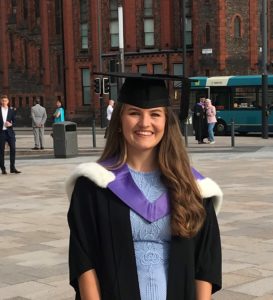
PLanning a Peer teaching project

Have an idea for a teaching project but not sure where to start? Bethan sets out a framework for planning below
Vision:
What do you want to achieve with your programme?
What kind of teaching style do you see? In the pre-covid world this might have been simulation or small group teaching. Now it might be zoom break out rooms or webex meetings!
I’m interested in a career in Anaesthetics so naturally I wanted to produce a teaching programme focusing on Anaesthetics & ICM for junior doctors. My vision was for Core trainees and Registrars in the field to teach at a level that would be digestible for Foundation Doctors.
I didn’t want the teaching to be a repeat of our (often boring) medical school lectures and hoped to find engaging teachers that would make their sessions interactive. I chose to use zoom as this was a platform I was most familiar with.. and it’s free!
Planning
What do you need to achieve your vision?
Can you do this alone or do you need help with hosting the sessions?
Do you want a team to evaluate your teaching with you are can you do self-guided reflection?
Where are you going to deliver your teaching?
When will you deliver the sessions?
How will you recruit educators?
How will you advertise your teaching?
As this was my first teaching project, I didn’t want to bring in too big of a team in case things got a bit overwhelming. Having Mim and Nate from PiPs to talk things through with was incredibly helpful though.
I would highly recommend not doing all of the teaching yourself. Firstly, the workload would be huge! But more importantly, thinking about the benefit to yourself and your learners, you would likely gain more from experiencing different teaching styles in your programme.
Getting learners involved
I compiled a mailing list of all of the NW Foundation School Administrators to help me advertise my project. I also set up a Facebook page which some people may pay more attention to when compared to emails! Additionally, I produced a flyer to send with my advertising emails and to use as my Facebook cover photo, to create a recognisable image associated with my programme.

Stakeholders
Who will your project affect? Who can support you in delivering it? Who do you need to make contact with before, during and after?
In terms of thinking about who I was targeting with my programme, I knew I wanted to aim this teaching at Foundation Doctors and later year Medical Students. It is important to research what your learners actually want to know about. I sent out a questionnaire prior to planning my programme to gauge if a) anyone was actually interested in attending the talks and b) if so, what did they actually want to know about.
From this information you can plan your teaching topics and find your teachers.
Having Nate (senior anaesthetist) to help me with my programme has been invaluable and I would recommend having a senior colleague or friend help guide you with your project if possible. Nate has been kind enough to both teach and supervise some of my sessions and give me some much needed advice at times.

A personal plan
How much time can you realistically devote to this project?
How much time do you think it will really take for you to prepare for each session?
Think about other time factors such as preparing certificates and sending advertisement emails.
Will you need help with the workload?

Evaluation
How will you evaluate the project? How will you gain feedback? And what specifically do you think it is worthwhile having feedback on?
Will you be doing any teaching yourself? If so – how will you evaluate yourself as a teacher? As a leader?
What will you do with this feedback to help yourself and others learn from your programme and improve?
Evaluation… you could argue the most important part of your entire programme!
It is a good idea to gain feedback for your programme and for your teachers. Have a think about what questions are actually useful to ask? What were you trying to achieve with this programme?
What have you learned about yourself as a programme lead?
If you are struggling with this part, there is plenty of help out there to help you think about this more.
To evaluate my teaching programme I sent out surveys following each session. I used open-ended questions with short answer text boxes to encourage more qualitative feedback, I personally find this more useful than rating scales.
I read through the feedback following each session and implemented any suggestions made to the following session – for example people were enjoying the level of interactivity so I asked my teachers to make their talks as interactive as possible. I also sent the feedback to the teachers following each session and offered to talk through the teaching with them afterwards.

Longevity
How long do you intend the programme to run for? do you want to set out a defined number of sessions before you begin?
Do you want to handover the project for somebody else to continue when you are finished? If so, how will you prepare for this?
I have been approached by an FY1 doctor who is interested in Anaesthetics and Med Ed who I plan on handing over the framework of the project to including my contacts and certificate templates. I’m hoping this means the programme can be delivered annually and continue to benefit junior doctors interested in Anaesthetics, but also giving someone an opportunity to organise their own programme each year.
I found that by answering these questions on paper gave me everything I needed to get started!
My advice would be to make sure you have all of your dates and teachers lined up before you even begin your first session to avoid any last-minute hunting! However, be warned that rota changes are inevitable and I would recommend catching up with your teachers about two weeks before they are due to teach.
In terms of “stakeholders”, having a contact in the relevant field can be extremely useful. In my case, I was preparing an Anaesthetics & ICM programme. Nate, one member of the PiPs team, is an Anaesthetics Registrar so has been an incredible help with finding colleagues who would be suitable to teach in the programme.
Finally, remember why you set out to do this in the first place – your learners! Find out what they want to know before you start. This might be in the form of a pre-session questionnaire or a question to your audience at the beginning of the talk. It is also useful to think about these things so that you can provide your teachers with a guide before they plan their teaching session.
I hope that this post gives you what you need to get started with your own peer teaching programme… and serves as an example of why you should get involved with PiPs (or a similar teaching community)!





